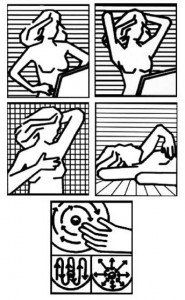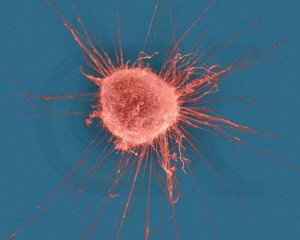There are many myths revolving strength training exercises. Exercises involving lifting weights are usually avoided by the body conscious types. These are the likes who do every other workout in the gym except to lift barbells or dumbbells because they think doing so will only make their muscles grow bigger, making them look bulky. Many share this notion, but more especially the women. Many of these ladies don’t want to look like men or body-builder types. Having those bodies supposedly lessens their femininity.
This article will tackle some of the misconceptions about strength training. Ladies, you don’t need to fear strength training exercises. They actually have numerous awesome benefits. According to experts, strength training is actually more effective at achieving certain fitness and health results than its more popular fitness workout counterparts like cardio exercise. [Read more…]
Originally posted on February 9, 2014 @ 10:45 pm

 Polycystic ovary syndrome is a relatively common condition in women, although it is not often diagnosed. With advancement in technology and more awareness, more women are able to determine if they are suffering from this syndrome, also known as PCOS. The condition is characterized by numerous small cysts in the ovaries, which interfere with the production of hormones. As a result, the male hormone testosterone is produced in higher quantities. The effects are manifested in various ways, some of which include fertility problems, irregular menstruation, obesity, and even increased risk for type 2 diabetes and heart problems.
Polycystic ovary syndrome is a relatively common condition in women, although it is not often diagnosed. With advancement in technology and more awareness, more women are able to determine if they are suffering from this syndrome, also known as PCOS. The condition is characterized by numerous small cysts in the ovaries, which interfere with the production of hormones. As a result, the male hormone testosterone is produced in higher quantities. The effects are manifested in various ways, some of which include fertility problems, irregular menstruation, obesity, and even increased risk for type 2 diabetes and heart problems.
